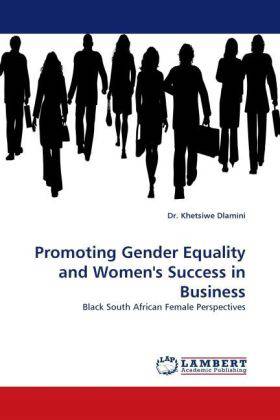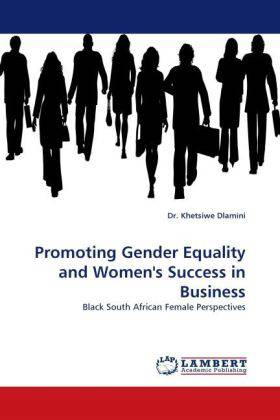
- Afhalen na 1 uur in een winkel met voorraad
- Gratis thuislevering in België vanaf € 30
- Ruim aanbod met 7 miljoen producten
- Afhalen na 1 uur in een winkel met voorraad
- Gratis thuislevering in België vanaf € 30
- Ruim aanbod met 7 miljoen producten
Zoeken
Promoting Gender Equality and Women's Success in Business
Black South African Female Perspectives
Khetsiwe Dlamini
Paperback | Engels
€ 48,45
+ 96 punten
Omschrijving
In South Africa gender oppression was institutionalised in the laws as well as in the customs and practices of our people.Within our racially and ethnically divided society, all women have a lower status than men of the same group do in both law and practice. And as with racism the disadvantages imposed on them cross the economic, political, social, domestic, cultural and civil spheres (Frene Ginwala, 1999). Promoting gender equality and the success of women in micro-businesses will facilitate the integration of women in the formal economy, and economic growth (Raymundo, 1998). This study should be used to bear testimony to the strength, tenacity and perseverance of black women in South Africa (Nunes, 1998). The study shows that women are able to maintain themselves and their families, despite all odds. It suggests that supporting women, and highlighting their plight, should not suggest that women are victims, and incapable of helping themselves.
Specificaties
Betrokkenen
- Auteur(s):
- Uitgeverij:
Inhoud
- Aantal bladzijden:
- 104
- Taal:
- Engels
Eigenschappen
- Productcode (EAN):
- 9783838354781
- Verschijningsdatum:
- 6/07/2010
- Uitvoering:
- Paperback
- Formaat:
- Trade paperback (VS)
- Afmetingen:
- 152 mm x 229 mm
- Gewicht:
- 163 g

Alleen bij Standaard Boekhandel
+ 96 punten op je klantenkaart van Standaard Boekhandel
Beoordelingen
We publiceren alleen reviews die voldoen aan de voorwaarden voor reviews. Bekijk onze voorwaarden voor reviews.











